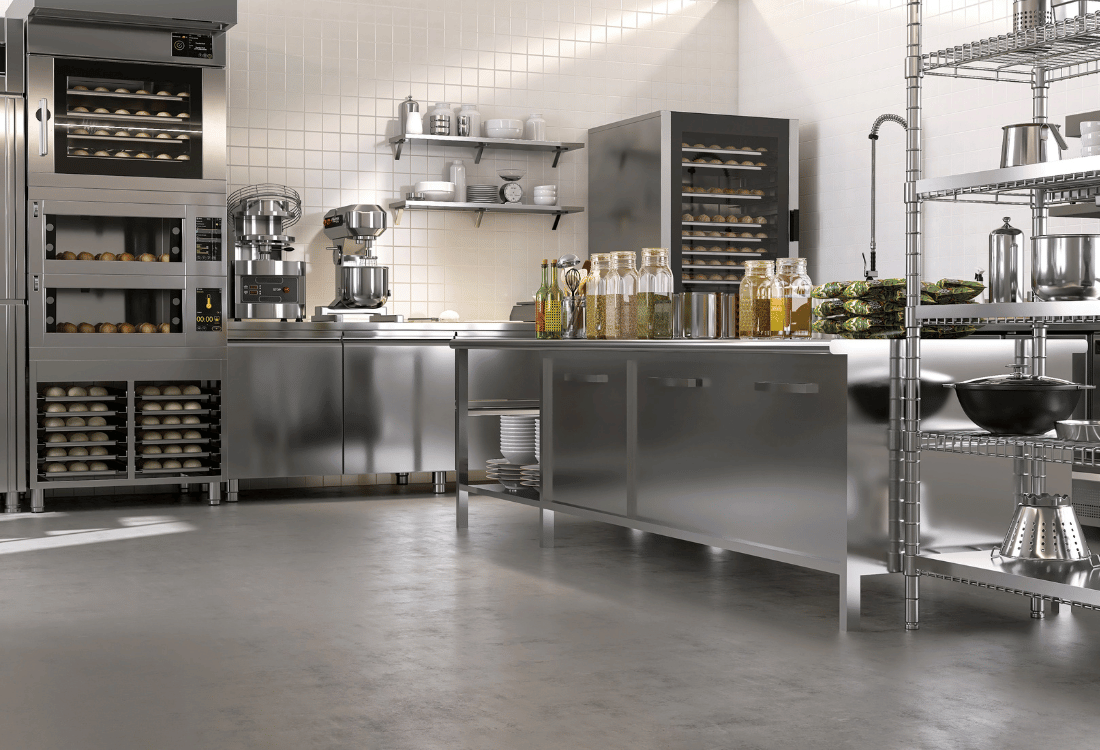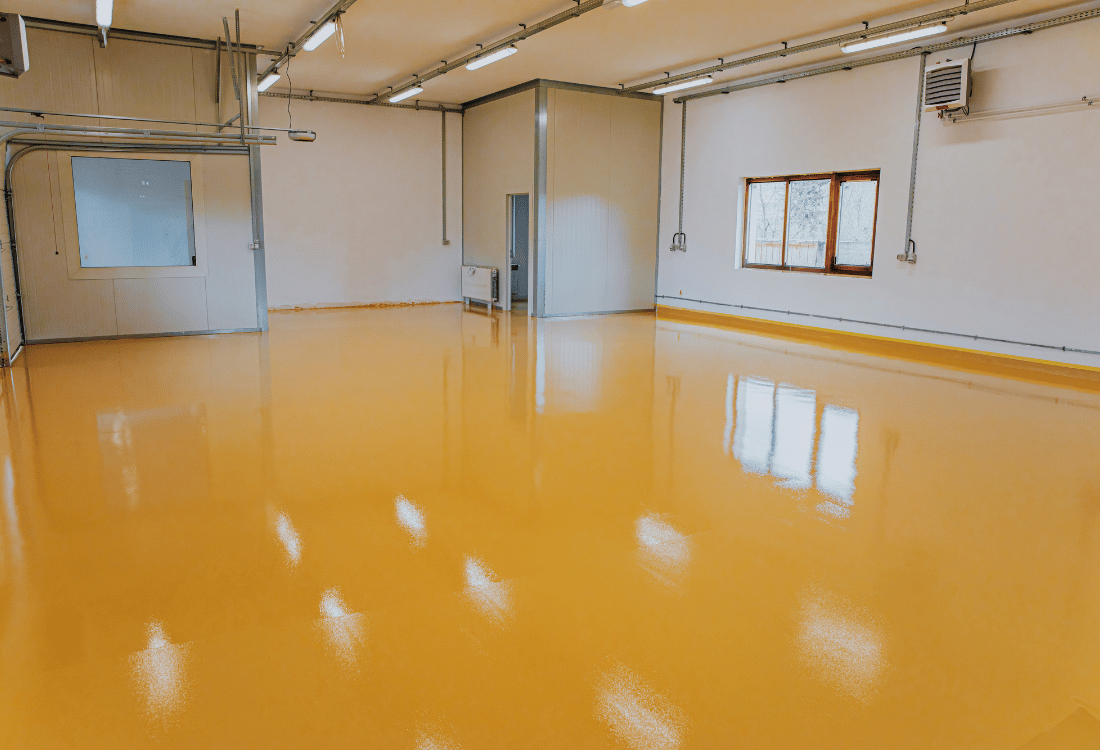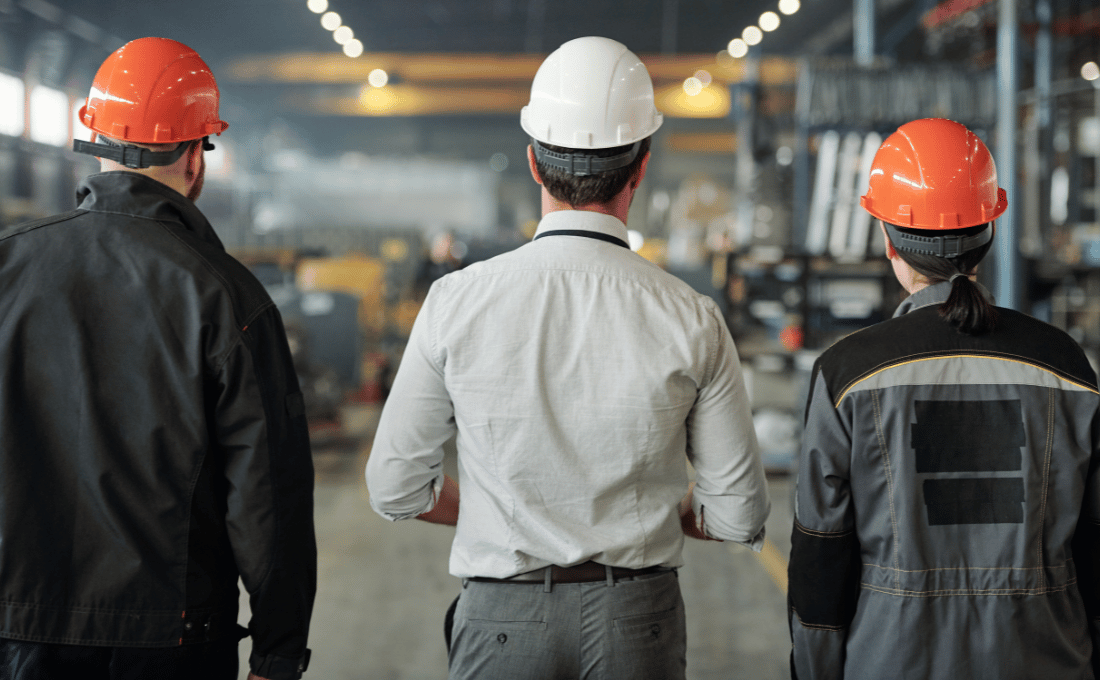5 Main Types of Slip Resistant Resin Flooring
From manufacturing to food and drink processing and pharmaceutical laboratories, slip-resistant flooring is an essential part of many modern workspaces. Choosing the right type of non-slip flooring for your business premises not only enhances safety and employee welfare but also means you are compliant with industry regulation and can avoid fines or other costly downtime. But, seeing as slip-resistance isn’t a one-size-fits-all kind of feature, there are several ways you can go about installing flooring that protects against slips, trips and falls.
Below you can find a breakdown of the top 5 slip resistant resin floors that deliver safety, durability and cost-efficiency.
Slip Resistant Resin Floors
Slip-resistant resin floors are a viable solution when both durability and safety are essential. Resin floors can even be customised to provide various degrees of friction, which offers traction to prevent slips and falls. This puts the power of slip resistance into your hands, allowing you to choose the level of resistance required in your facility. This is usually achieved by incorporating elements such as silica, aluminium oxide and quartz into the resin coating. Resin is also able to provide a seamless and jointless floor surface, eliminating the possibility of trip hazards from degraded edges and corners.
Chemical Resistant Resin Floors
These floors are specially designed with resins and other additives to withstand exposure to acids, alkalis, solvents and other aggressive chemicals. These are substances that can cause corrosion and other damage to traditional floor substances. By choosing chemical resistant flooring you can protect your floor surface against deterioration and slip hazards – even when using dangerous or potentially damaging chemicals. They can also be further customised with anti-slip elements for an even safer finish.
Quartz Screed Resin Floor
Quartz resin flooring combines both regular epoxy resin and quartz to create a more durable and versatile floor. However, they have the added advantage of being more aesthetically pleasing than some more functional anti-slip flooring. This makes them more suitable for customer facing areas or facilities where patient interactions happen, such as hospitals or clinics.
Food Safe Floors
Slip-resistant food-safe resin floors need to meet the stringent hygiene standards as laid out by UK Food Safety Standards. That means they need to be formulated to withstand cleaning chemicals and temperature fluctuations that occur in food production facilities, while still maintaining slip resistance and protecting workers at all times. Ideally, food safe floors should be seamless and easy to clean and slip resistance even in wet conditions.
ESD Resin Flooring System
Electrostatic discharge floors, also known as ESD, protect sensitive equipment by preventing or dissipating static electricity. These types of floors are commonly used in technology manufacturing facilities such as plants or laboratories, as they offer a degree of protection against damage or risk to both equipment and operatives. However, as well as dealing with static discharge in a safe and compliant way, they also need to be anti-slip given the delicate nature of the work that usually occurs in these environments. ESD flooring is therefore a highly durable and extra safe flooring type ideal for use in these specialised environments.
If you would like to know more about your slip-resistant flooring options, or to discuss your specific needs, then contact us to speak to a member of the team.
Image Source: CanvaYou May Also Like
These Related Stories

The Importance Of Slip Resistant Resin Flooring For The Food Industry

Saving Time: How Long Does A Resin Floor Take To Dry?


